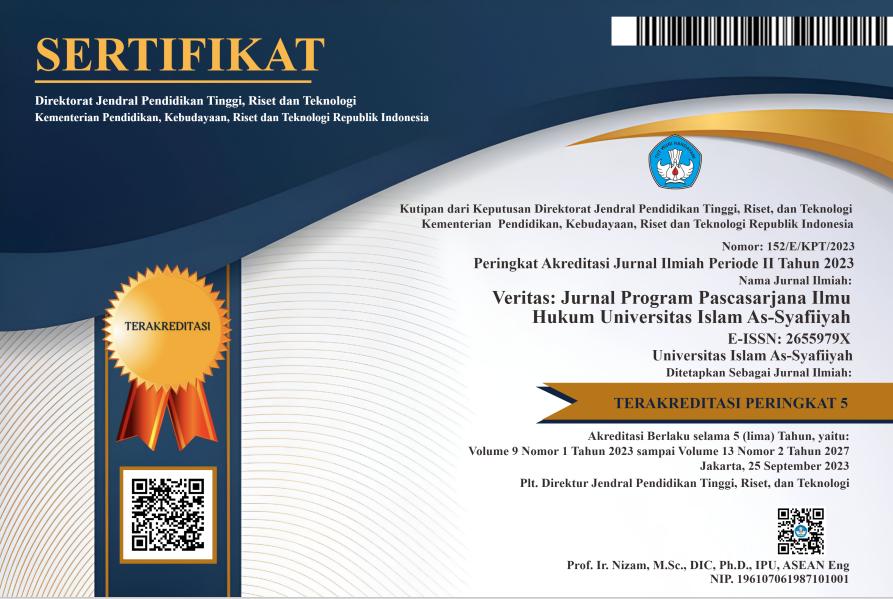POLICIES OF SPIN-OFF REGARDING SHARIA BUSINESS UNIT OF PT. BNI IN INDONESIA
Abstract
Acceleration of the development of Sharia business will be more easily done through
Sharia Banks. With the separation of Sharia Business Unit into Sharia Banks it will
hopefully be easier to compete, more agile and flexible in making business decisions in
the future. Improve the quality of trust and image as Sharia Bank; by separating the
expected bank that is formed will have a high reputation and a deep understanding of
sharia products and services. Increase productivity and efficiency, Separation is done
also expected to encourage the passage of market best practice and good corporate
governance (GCG) in business management of Sharia Banks. Easier In Improving the
capital structure, by doing the separation, Sharia Banks can conduct effective strategic
cooperation with third parties, including related to the capital increase if needed in order
to anticipate future business opportunities. Providing benefits to shareholders, The
results of the separation of UUS into Sharia Banks is believed to have a positive impact
on shareholder value as well as in the form of dividends to bank shareholders who
perform the separation. Support the growth rate of Islamic banking, Sharia Bank Plan in
accordance with the business plan has been prepared, the separation of bank asset
growth is expected to rise and contribute significantly to the growth of Islamic banking
industry. Improve financial performance as reflected in the Consolidated Financial
Statements.
References
A. Karim, Adiwarman Perbankan Syariah 2008: Evaluasi, Tren, dan Proyeksi. Research
& Management Division Head. (Jakarta: KARIM Business Consulting, 2008).
Harahap, Yahya. Hukum Perseroan Terbatas. cet.2, Jakarta: Sinar Grafika, 2009.
Hariyani, Iswi dan Serfianto Dibyo Purnomo. Buku Pintar Hukum Bisnis Pasar Modal.
cet.1, Jakarta: Transmedia Pustaka, 2010.
Heri Sudarsono, Bank dan Lembaga Keuangan Syariah, (Jogjakarta: EKONISA, 2003).
Hermansyah. Hukum Perbankan Nasional Indonesia. (Jakarta: Kencana Prenamedia,
2005).
History of BNI Sharia, (2016, April 29) from http://www.bnisyariah.co.id/en/sejarah-bni-
syariah.
Hukumonline.com. Tanya Jawab Hukum Perusahaan. cet.1, Jakarta: Transmedia
Pustaka, 2009.
Kasmir. Bank dan Lembaga Keuangan Lainnya. (Jakarta: Rajagrafindo, 2014).
Mamudji, Sri. Et al. Metode Penelitian dan Penulisan Hukum. Jakarta: Badan Penerbit
Fakultas Hukum Universitas Indonesia, 2005.
Novi Yushita, Amanita. Bank dan Lembaga Keuangan Lainnya. (Jogjakarta: State
University of Jogjakarta Press, 2014). Chapter 6, Accessed on 29 April 2016,
http://staff.uny.ac.id/sites/default/files/pendidikan/amanita-novi-yushita- se-
msi/bank-syariah.pdf.
Soekanto, Soerjono. Pengantar Penelitian Hukum. Jakarta: Universitas Indonesia, 2006.
“Sekilas Perbankan Syariah Di Indonesia”. bank Indonesia on sharia banking.
http://www.bi.go.id/id/perbankan/syariah/Contents/Default.aspx.
Tunggal, Hadi Setia. Hukum Perseroan Terbatas Teori, Tanya Jawab dan Kasus.
Jakarta: Harvarindo, 2011.
Law & Regulation
------------Law No. 10/1998 Concerning Banking amendement of Law No. 7/1992
------------Bank Indonesia Regulation No. 11/3/PBI/2009
------------Bank Indonesia Circular Letter No. 11/9/DPbs Dated April 7, 2009.




